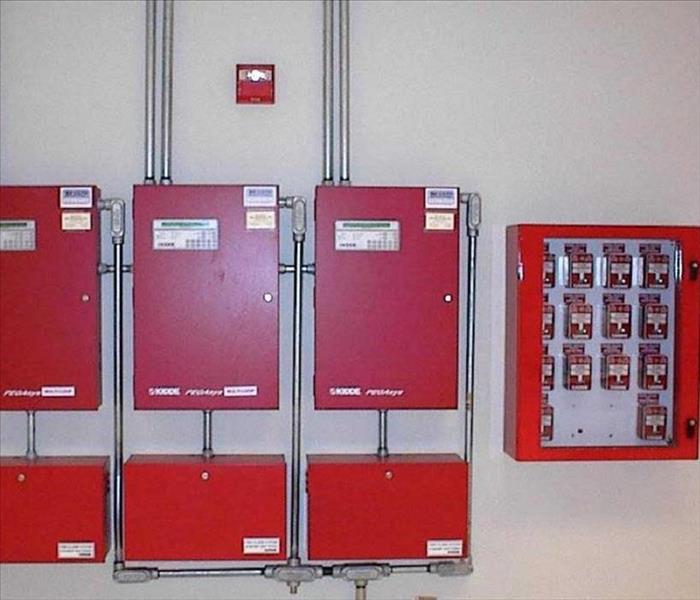Have a business in Western Dutchess County? Here's some important reasons to have a Fire Detection System in your building.
10/30/2018 (Permalink)
A fire may happen anytime, anywhere – despite your best efforts to prevent one. Protecting lives and minimizing damage to property in the event of a fire are critical to the ongoing operations of your business.
An important component of fire protection is detection – the ability to detect fire in its very early stages. Detection systems that provide early warning of fire are a key component of a property protection program. They also can play an important role in your life safety evacuation efforts.
The two most common choices for fire detection systems are smoke detectors and heat detectors. Which to use depends on a number of factors, including the occupancy being monitored and perhaps most importantly, your objectives (life safety & evacuation, or protection of property).
Smoke Detectors — Early Warning — Life Safety First!
Smoke detectors are best in areas where early detection and warning of a fire is critical to the preservation of life. They are an important part of a building’s life safety program. For life safety considerations, the requirements for smoke detection are covered in the NFPA 101 Life Safety Code.
Smoke detectors are also used where early detection and warning of a fire is critical to help minimize property damage and protect highly sensitive optics, electronic equipment, equipment in computer rooms and other equipment that are highly susceptible to damage from the byproducts of fire or combustion.
Heat Detectors — Early Warning — Particulate Environments
While smoke detectors may be the best choice in some fire protection applications, heat detectors could be a better choice for early warning in environments with too many airborne particulates due to excessive steam, moisture, dust or humidity, such as parking garages and truck docks. Smoke detectors in these environments may be prone to cause unwanted alarms. Heat detectors are generally not considered early warning systems for life safety evacuation.
If you have an automatic sprinkler system installed throughout your facility, it can help minimize the severity of a fire and also serve as a heat detection notification system. As such, it can help facilitate a more rapid response by you and the fire department. For the system to adequately respond as a heat detection and notification system, the sprinkler water flow should be monitored 24/7 and the system must remain in operating service (e.g., control valves open, control panel continuously energized).
Sounding the Alarm: Notification is Key
There is a difference between an individual smoke or heat detector, and a detection system. A properly arranged, monitored and maintained detection system has the major advantage in its ability to provide notification to building occupants and emergency responders in the earliest stages of a fire.
Detection systems should be arranged to sound an alarm throughout the building. They also should be connected to a 24/7 monitoring service where notification to the fire department will be prompt.
Whatever type of detection system you choose it should be installed and maintained in accordance with NFPA 72 National Fire Alarm and Signaling Code.
Detection Systems and Beyond
As important as smoke and heat detectors are, detection is not a substitute for fire prevention and suppression, particularly when the combustibility of property – construction and contents – is significant.
Smoke and heat detectors do nothing to prevent or extinguish a fire. They are simply detectors designed to:
- Detect an abnormal condition.
- Sound an alarm to provide notification of a fire emergency.
- Facilitate rapid evacuation of building occupants, and;
- Signal emergency personnel to respond to a fire.
A complete fire risk management system should include both fire detection and suppression systems. The right fire suppression system is critical for fire safety preparedness! Learn more about fire suppression systems.
(Reference: Travelers Insurance for Business, Facilities Maintenance, Prepare & Prevent. https://www.travelers.com/resources/facilities-management/fire-detection-systems





 24/7 Emergency Service
24/7 Emergency Service
